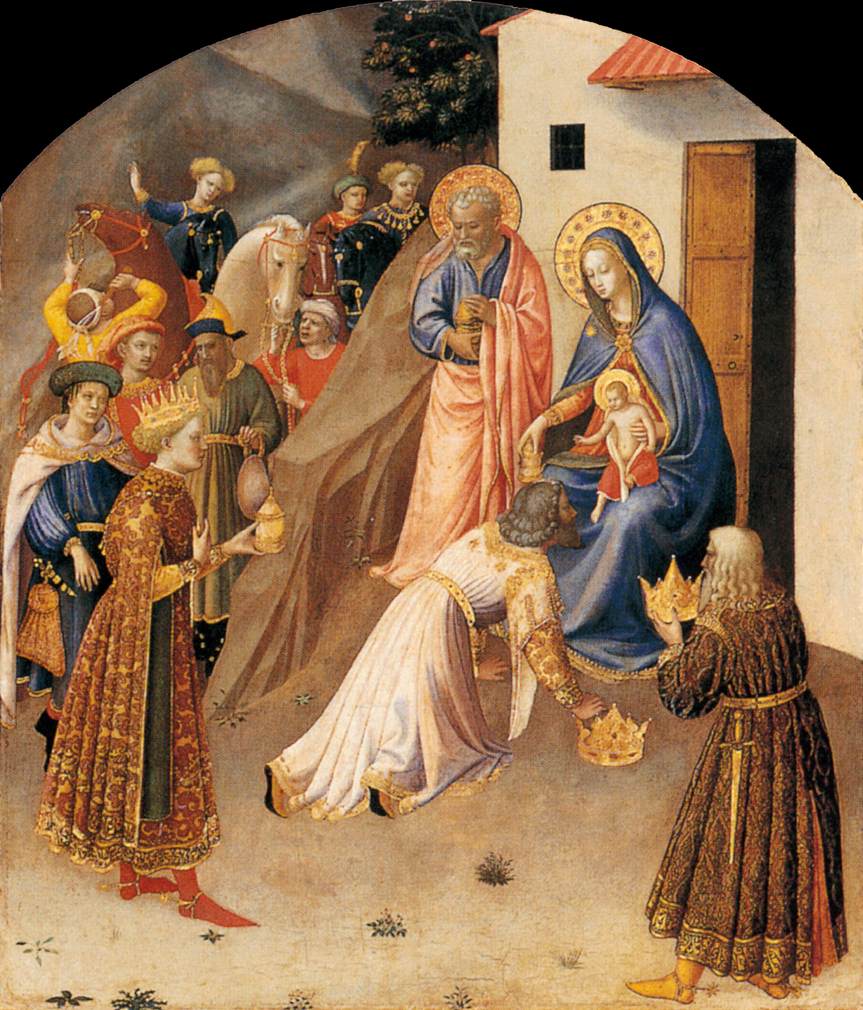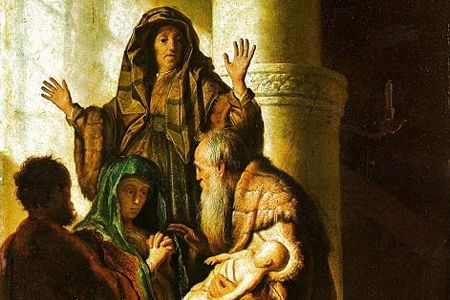Bethlehem Lutheran & Bethel Lutheran Church, Lebanon & Sweet Home, OR
The Baptism of Our Lord + January 13, 2019
Text: 1 Corinthians 1:26-31
One of the devil’s tactics against Christians is to tell them that they are unworthy. Here’s how it goes: Not necessarily about being unworthy to stand in God’s presence, but he will tell you that you are unworthy of the name Christian. Don’t you know that good Christians don’t cuss? Don’t you know that a good Christian shouldn’t drink too much and always live a chaste and decent life? You aren’t good enough to be called a Christian because you’re not sanctified enough and you’re too weak to overcome your sins. Your life is full of pockmarks that say, this person’s screwed it up too big for even God to want to fix.
Then the devil points you to other people—who you’re to imagine are doing much better than you. They must be doing something right, because they seem to have it together. Their devotional life is so godly, their spirit is so gentle, and they bear their cross so gracefully. Here, Facebook is a wonderful tool because it can play up notions of inadequacy as you scroll through the parts of other people’s lives they want you to see. They must be doing it right—just to make you feel more like you don’t measure up or could possibly never live up to that standard.
The final leg of Satan’s tactic is to make you feel alone. You must be the only Christian who has ever struggled with sin this hard, and hasn’t been able to overcome a weakness. God is far away and has far more important matters to attend to than your small requests and griefs. I should just buckle down and try harder; I shouldn’t be so sad, and shouldn’t struggle in my faith.
The devil will take you everywhere except to the Jordan River where Jesus is. There the Lord of Glory stands in the midst of sinners. He does not quench a faintly burning wick, but upholds the weak in faith, the attacked, those who have been humbled by the weakness of their flesh, those whose cheeks are stained with tears from their own sins and the sin and death that has happened to them.
But who do we find in the Jordan? John the Baptist recognizes Him: “I need to be baptized by You and do You come to me?” I am not worthy to untie the strap of your sandal. I’m no better than any of these others who stand confessing their sins!
Jesus came to these waters willingly. “Let it be so now, for thus it is fitting for us to fulfill all righteousness.” He’s come exactly for this purpose and there is no place He would rather be, than in the midst of these sinners to fulfill righteousness for them. He is truly the Lamb of God who takes away the sin of the world, and when He is lifted up on the cross to draw all men to Himself (John 1:29, 12:32).
Where does that leave you and me today? St. Paul writes to the 1st century Corinthian Christians and us:
26 For consider your calling, brothers: not many of you were wise according to worldly standards, not many were powerful, not many were of noble birth. 27 But God chose what is foolish in the world to shame the wise; God chose what is weak in the world to shame the strong; 28 God chose what is low and despised in the world, even things that are not, to bring to nothing things that are, 29 so that no human being might boast in the presence of God.
“Consider your calling, brothers,” he says. Think about where you were when God worked faith in your heart to believe that Jesus shed His blood in love for you. So, think about it! Whether it was a special moment in your life or you’ve just always known it, I want you to think about what brought you to the foot of Jesus’ cross. Was it like a job interview where you put forth your best foot, showing your qualifications, and waited to be called back? Was it like buying a house where you put in an offer and hope that you’ve made an appealing enough offer? Nothing of the sort!
In fact, God’s amazing grace and power is displayed in calling the under-qualfied, the undeserving, the screw-ups and backsliders. God chooses to do it this way, so that every one of us would know that it is not because of any personal advantage that we have been chosen by God—no merits, no seniority ladder, no coming from the right kind of family. And that brings us into the dirty waters of the Jordan River with Jesus. We stand together, a great mob of people who have this in common: none of us have something to boast about before God. We are all equal recipients of God’s undeserved favor.
St. Paul is a great example of this himself. He was an enemy of God when he was called, a real soldier of the devil’s cause against Christ and His Church. He was in the middle of that mission when Christ knocked Him down on the road to Damascus and humbled him. But it wasn’t a once-and-done conversion. Even Paul, Apostle to the Gentiles, wrestled with doubts about his past sins: “To me, though I am the very least of all the saints, this grace was given” (Eph. 3:8) and “formerly I was a blasphemer, persecutor, and insolent opponent.” (1 Tim. 1:13) On top of that, he bore sins that he was not able to master or leave behind: “A thorn was given me in the flesh, a messenger of Satan to harass me, to keep me from becoming conceited. 8 Three times I pleaded with the Lord about this, that it should leave me. 9 But he said to me, ‘My grace is sufficient for you, for my power is made perfect in weakness.’” (2 Cor. 12:7-9)
But you know, even at this point, we’re not safe from temptation to pride. 500 years ago, this Gospel was so rare that people flocked to hear it. Today, Christians often go to the point of taking the Gospel for granted. This is what we tell ourselves: I know I shouldn’t do this, but that’s okay, God will forgive me anyway. I’m a child of God through faith, so it doesn’t matter what I do because God will always catch me. That’s another deadly form of pride, because it’s a symptom of a hard heart that refuses to acknowledge what it cost to have Jesus stand in the Jordan and ultimately bear the world’s sins in His body on the cross. It’s actually the same heart that says, it doesn’t matter what you believe, you’ll go to heaven as long as you’re a good person.
God chose what is weak, low, and despised to shame the strong and proud. He calls people to Himself who confess that they have no power to save on their own. What does God do for these weak and needy children? St. Paul continues: “30 And because of him you are in Christ Jesus, who became to us wisdom from God, righteousness and sanctification and redemption, 31 so that, as it is written, ‘Let the one who boasts, boast in the Lord.’” You have been given not only forgiveness of sins, but a strong protection against sin, the devil, and death. Because God the Father called you, you are in Christ Jesus, meaning that you have the sure and certain love and protection that God bestows on His beloved Son. The Voice that sounded from heaven, and the Spirit that descended on Jesus, spreads to include you.
“This is my beloved Son, with whom I am well pleased.” You have a new existence in Jesus your Savior. In Him, you have consolation in the weakness of your sins. He gives you a mighty defense against Satan’s accusations, just as He faced the devil in the wilderness. He daily and richly forgives all your sins, as your risen and glorified High Priest. He has made you part of a communion of saints which spans time and place, earth and heaven. You are not alone to face sin, death, or devil alone because the Lord is with you to uphold you.
This is what it means to be given the name of “Christian.” You are a sinner, standing in the Jordan, expectant and hoping in your Messiah and Savior, confessing your sins and believing in that full pardon that Jesus has gained for you. Yes, you will be attacked, you will have doubts, and you will have weaknesses which the Lord in His wisdom doesn’t remove. But “resist the devil, firm in your faith” because those evils are all meant by God to continually bring you to Christ crucified. He is your strength and salvation.
St. Patrick preached this good news to the Irish, and the poem St. Patrick’s Breastplate reflects this confidence that we have from God:
I bind
unto myself today
The strong name of the Trinity
By invocation of the same,
The Three in One and One in Three.
I bind
this day to me forever,
By pow’r of faith, Christ’s
incarnation,
His Baptism in the Jordan River,
His cross of death for my salvation,
His bursting from the spicèd tomb,
His riding up the heav’nly way,
His coming at the day of doom,
I bind unto myself today.
Amen.









